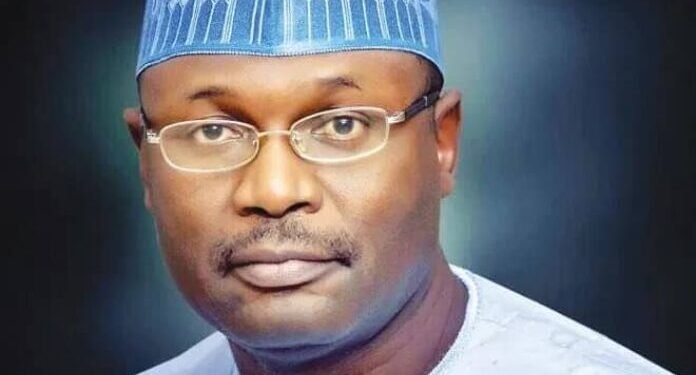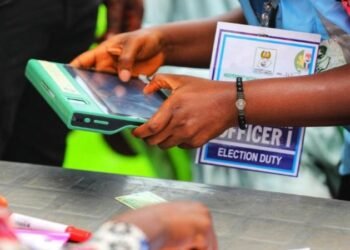Civil Society groups and prominent Nigerians have cautioned the Independent National Electoral Commission (INEC) not to allow manipulation of the 2023 general election.
They warned that with the current level of political consciousness, Nigerians would not tolerate manipulation of next year’s general election.
This followed a pronouncement credited to the electoral umpire that the forthcoming polls would be manually collated.
However, the Commission has reaffirmed that electronic transmission of election result has come to stay.
It gave the clarification in a statement entitled: “Clarification on Electronic Transmission of Election Result,” signed by Festus Okoye, national commissioner and chairman, Information and Voter Education Committee, in Abuja.
He said: “For clarity, the procedure for result transmission remains the same as in recent governorship elections in Ekiti and Osun States. There will be no change in all future elections, including the 2023 general election.
“We wish to reassure Nigerians that the electronic transmission of result has come to stay. It adds to the credibility and transparency of the process when citizens follow polling unit level results on the INEC Result Viewing (IReV) portal on real-time on Election Day. There will be no change or deviation in subsequent elections.”
Reacting further, the commission noted that; “the entire gamut of result management is provided for in Sections 60, 62 and 64 of the Electoral Act 2022. In line with the provision of the law, the commission, in April this year, released a detailed clarification of the procedure for transmission, collation and declaration of result which was shared with all stakeholders and uploaded to our website.
“We appeal to all Nigerians to avail themselves of the provisions of the Electoral Act and the commission’s detailed explanation of the procedure and not reach a conclusion on the basis of media headlines,” the commission charged in the statement.
Notwithstanding the clarification, Inter Party Advisory Council (IPAC), Yiaga Africa, the Transition Monitoring Group (TMG), Pat Utomi and others have tasked INEC on the need to ensure a free and fair poll.
Chairman of TMG, Auwal Rafsanjani tasked the commission to provide clarity on its recent pronouncement to assuage the suspicions of the electorate and rebuild their confidence to exercise their rights to vote.
“Given the statement by the national commissioner and chairman of the Information and Voter Education Committee that while collation process of results is still essentially manual, the collation officer must collate subject to his verification and confirmation that the number of accredited voters stated on the collated result are correct and consistent with the number of accredited voters recorded and transmitted directly from polling units, there are key questions to be asked.
“Why then does the commission need to collate manually if the electronic transmission figures will prevail? We cannot afford to take two steps back for every step forward that we take….
“The INEC should further seek to ensure whatever actions are taken in the run up to the elections do not run in violation of the provisions of the Act.”
Executive Director, Yiaga Africa, Samson Itodo, said INEC is constitutionally backed to collate result manually, and advised Nigerians to watch out for the gaps that would encourage electoral fraud and prevent them.
He said Nigerians must ensure images of the authentic results are captured by BVAS and uploaded, insist that INEC transmit the number of accredited voters using BVAS as this would serve as checks against fraudulent practices.
He said Nigerians must also push and ensure INEC uploads the collated results on form EC8B which is at the ward level as against uploading just form EC8A and lastly, the result must be verified at the ward level and the result must tally with the one transmitted electronically.
In his reaction, former IPAC national chairman, Peter Ameh, warned INEC not to cause confusion that would jeopardise a credible process in the general polls.
Arguing against manual collation, National Chairman of IPAC, Yabaji Sani, said the process would be fraught with irregularities.
He said: “When they passed that electronic transmission of result from the polling unit, the lacuna there, or rather, the weak points in the chain is that results will be manually collated. That, to some of us, is the weak point of the system, because I am sure the portal has the capacity to collate. The portal can collate in any point at time automatically.
“It is a matter of configuring the portal. They could have allowed the collation to be done by the portal at the same time as collation is done manually like in the case of the transmission of results from the polling units.
“Anything manual will affect the credibility of the results which means it is subject to environment error and human error.
“So, there is room for errors because it is human beings that are working there. We, humans, are not 100 per cent perfect in whatever we do.”
The House of Representative candidate for Ankpa Federal Constituency also chided the commission for throwing the country into apprehension with report suggesting that it was planning to rig the poll.
He argued that what the commission would essentially be doing at the collation centre is more or less reconciliation of results that passed through electronic processes of transmission.
“The implication of relevant section of the new Electoral Act on the collation is that collation will essentially be manual. The collation officer must, however, do that subject to the verification and confirmation that the number of accredited voters stated on the collated results are correct and consistent with the accredited voters recorded by BVAS from the polling unit.
“The explanation over manual collation of result is very clear and it states that when it is done manually and there is a dispute, the collation officer will use the accredited figure from BVAS and the results transmitted directly from the polling units to determine the correctness of the results collated manually.
“So, what they will essentially be doing at the collation centre is more or less reconciliation of results. What it means is that there is a dual process of accreditation and collation and they must all tally,” he explained.
Constitutional lawyer, Olukayode Ajulo, however, said Nigeria lacked the electricity infrastructure as well as GSM network to collate result electronically.
He said: “The new Electoral Act 2022 has mandated INEC, and this is what we can call introduction of technology into conducting our election in Nigeria. What I mean is that before, it had been in the regulation, it has been in the guidelines. But for the first time, we have a law that says Section 5, Section 47, Section 58 and all those other sections, saying you must use electronic devices to conduct election. It specifically mentioned registration, coalition, transfer and all that. But unfortunately, another section, I believe that Section 65 or 68 now talks about all these things having been done, INEC still has the latitude to use their procedure or their guidelines, which now is the issue. And that is where the problem starts from.
“The problem here is that despite the usage of all those technology, INEC still has the latitude. That means, it is within the discretion of INEC to now see what can be used to conduct the election. And the reason for this is not far fetched, because though, I must confess, I’m not INEC lawyer or spokesperson and I’m not promoting INEC, but the truth of the matter is we should ask ourselves this question in Nigeria, are we ready to deploy technology to cover election in Nigeria judging from the fact of our infrastructure challenges?…It is impossible.”
Director General of Campaign, African Democratic Congress (ADC), Abdulazeez Suleiman, warned Nigerians have become more politically aware, hence would not allow anybody or institution to compromise the forthcoming election.
The ADC campaign director general recalled how the electoral umpire shifted the deadline for the national convention of parties to give the ruling party some advantage and cautioned that such shenanigans would not be tolerated again.
Professor of economics and strategy, Pat Utomi, said the recent statement by INEC on the 2023 elections is full of contradiction.
The Labour Party chieftain and convener of the National Consultative Front (NCFront) and founder/CEO, Centre for Values in Leadership (CVL), questioned how result of the 2023 general election can be transmitted electronically and collated manually at the same time.
But Yerima Shettima, President of Arewa Youths Consultative Forum (AYCF), said the INEC Chairman, Mahmood Yakubu, has demonstrated integrity in the recent off-season elections, particularly in Osun State, and should be given the benefit of doubt.
He said: “I don’t really think otherwise of what decision the electoral umpire, under the leadership of Yakubu, takes, whether the result of the election will be collated electronically or manually. He has demonstrated integrity and is still demonstrating it. Perhaps, he had a thought and thinks there is a better way to do it, and that better way turns out to be the manual collation of election results. Yakubu has not given me a reason to doubt his competency and integrity and I am sure he wants to be remembered on the positive side of history. Let us give him the benefit of doubt on whatever modality he wants to adopt in 2023.”
(Courtesy: Daily Sun, excluding headline)










